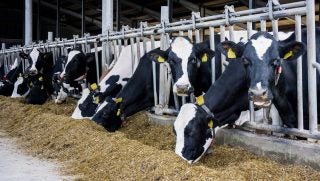Swine flu precautions may weigh heavier on the minds of exhibitors, fairs, and fairgoers after two people contracted swine flu after visiting pig exhibits at Michigan county fairs.
The Centers for Disease Control and Prevention reported these first two U.S. human infections with the flu virus from pigs in 2023 — one that appears to have originated in Tuscola County and the other in Oakland County. The infections were caused by two types of flu viruses that generally spread among pigs. They occurred in two people who attended various agricultural fairs in Michigan and had exposure to pigs in early to mid July.
Both patients were treated with flu antivirals, were not hospitalized, and are now recovering.
Each year, sporadic human infections with flu viruses spread in pigs. While the viruses are called “variant flu virus” infections in humans, these infections are typically associated with contact with pigs, often at agricultural fairs.
While infections from swine influenza viruses usually cause mild illness, they are concerning because they can cause more severe disease in people with a higher risk of serious flu complications and because of their pandemic potential.
These infections are thoroughly investigated to be sure that such viruses are not spreading in an efficient and ongoing way in people and to limit further exposure of people to infected animals if infected animals are identified.

You can still attend fairs, just practice common sense
This doesn’t mean you should cancel your trip to the livestock barns anytime soon — some common sense measures apply.
When visiting areas where pigs are present, it’s recommended that you do not eat or drink the areas. Items such as pacifiers and bottles are discouraged, and visitors should wash their hands well with soap and water before and after coming into contact with pigs.
The CDC also recommends that people take precautions to prevent the spread of swine influenza viruses to people and has guidance for people exhibiting pigs at fairs, people attending fairs, and fair organizers.
How does this affect exhibitors?
Exhibitors should also monitor their animals closely for signs of illness, practice biosecurity measures, and contact a veterinarian if they exhibit any signs of disease.
Right now, the Wisconsin State Fair’s swine sho is not affected. The Wisconsin Department of Agriculture, Trade, and Consumer Protection requires that pigs moved around the state are tested within 90 days of movement. A veterinarian also examines pigs within 30 days of the state fair. Once animals arrive at the fair, they will be examined for visible signs of disease.
Because flu viruses in pigs can change constantly, pigs can be infected by avian flu, human flu viruses, and their own flu viruses. When flu viruses spread from different species, the virus can reassort (swap genes), and new viruses can emerge that can infect and spread from person to person.
Scientists believe this happened in 2009 when a new swine-origin H1N1 virus with genes of avian, swine, and human origin emerged to cause a flu pandemic.
»Related: Biosecurity measures on farms: Here’s what it means for our food


